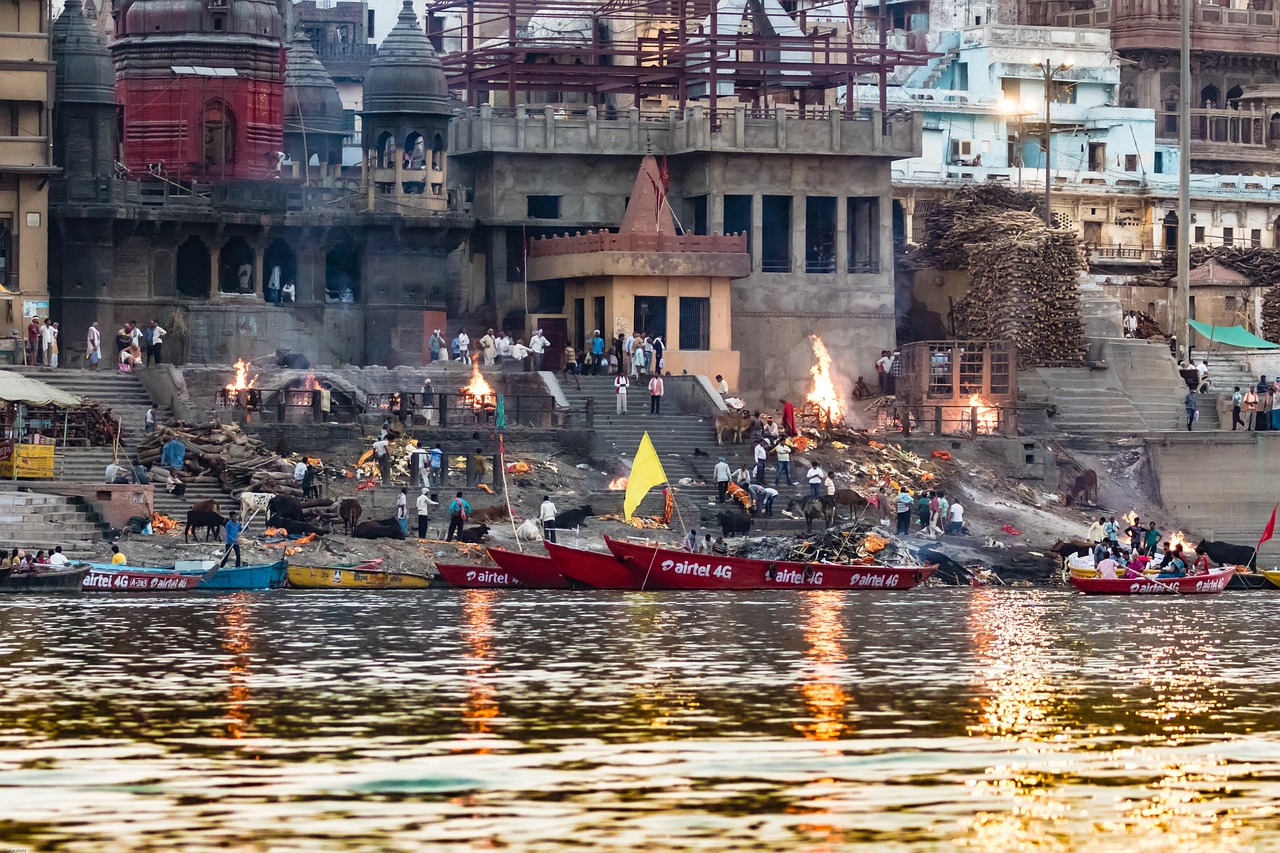
The Ethics of Development: Philosophical Perspectives from Uttar Pradesh
- admin
- October 10, 2025
- Government, law & rights
- 0 Comments
Balancing Tradition, Faith, and Modernity in the Heartland of India
Varanasi – Uttar Pradesh, home to some of India’s most sacred religious centers and historical landmarks, is undergoing rapid development. From multi-billion rupee infrastructure projects to industrial corridors and urbanization, the state has embraced modernity with vigor. However, development in a region as philosophically and culturally rich as Uttar Pradesh is bound to raise ethical questions. How does one reconcile the demands of progress with the need to preserve the sanctity of its religious and historical heritage?
Development Through a Philosophical Lens
1. Dharma and Development
In Hindu philosophy, dharma (duty) emphasizes the responsibility of individuals and governments to uphold societal welfare while adhering to ethical principles.
- Example from Varanasi: The construction of the Kashi Vishwanath Corridor, which connects the iconic Kashi Vishwanath Temple to the Ganga River, exemplifies this dual approach.
- Positive Impact: The corridor has improved accessibility for pilgrims and boosted local tourism.
- Ethical Debate: Critics argue that the displacement of local residents and the loss of old structures challenge the ethical balance of preserving cultural memory while pursuing development.
2. The Ganga-Jamuni Tehzeeb and Inclusive Growth
The Ganga-Jamuni tehzeeb, symbolizing communal harmony and shared cultural heritage, provides a unique framework for inclusive development in UP.
- Religious Significance: Sites like the Bara Imambara in Lucknow and Ayodhya’s Ram Mandir attract millions of visitors annually, reinforcing the state’s dual commitment to Hindu and Islamic cultural preservation.
- Ethical Questions: Development projects near these sites often prioritize economic benefits but face criticism for insufficient consultation with local communities.
3. Gandhian Philosophy and Grassroots Development
Mahatma Gandhi’s emphasis on self-reliance and rural empowerment continues to inspire development policies in Uttar Pradesh.
- Example from Bundelkhand: Water conservation efforts led by local communities draw upon Gandhian principles, combining traditional wisdom with modern technology to address droughts and ensure sustainability.
- Impact: These initiatives provide a model for ethically sound development that prioritizes community participation.
Religious Centers as Ethical Anchors
1. Varanasi: A Living Philosophy
As one of the world’s oldest cities, Varanasi embodies the philosophical tension between preservation and progress.
- Spiritual Significance: Known as the city of moksha (liberation), Varanasi attracts millions of pilgrims annually.
- Modern Challenge: Infrastructure upgrades like flyovers and parking facilities, while necessary for tourism, risk disrupting the spiritual essence of the city.
- Ethical Consideration: Projects must respect the spiritual significance of the Ganga and its ghats, aligning with the ancient philosophy of living in harmony with nature.
2. Ayodhya: A Symbol of Revival
The upcoming Ram Mandir in Ayodhya has placed the city at the center of global attention.
- Economic Potential: The state government projects a tenfold increase in tourism, with over 2 crore visitorsexpected annually once the temple is completed.
- Ethical Question: The rapid urbanization around Ayodhya raises concerns about whether the commercialization of a sacred space undermines its philosophical and religious sanctity.
3. Mathura and Vrindavan: The Philosophy of Devotion
Associated with Lord Krishna, Mathura and Vrindavan are hubs of bhakti (devotion) philosophy.
- Sustainability Challenges: The surge in religious tourism has increased pollution in the Yamuna River, threatening the ecological balance.
- Philosophical Dilemma: How can the principles of devotion and reverence be extended to environmental stewardship?
Development vs. Preservation: Ethical Tensions
1. Urbanization and Heritage Loss
- Impact: Cities like Agra and Lucknow, with their rich Mughal and Awadhi heritage, face pressure to modernize, often at the expense of historical structures.
- Example: The Taj Mahal’s surroundings have seen increased commercialization, raising questions about balancing tourist infrastructure with heritage preservation.
2. Displacement and Social Justice
- Case in Point: The Jewar International Airport project displaced over 3,000 families, with activists arguing that compensation packages fell short of ensuring justice.
- Philosophical Perspective: The ethical principle of ahimsa (non-violence) calls for minimizing harm to communities affected by development.
3. Environmental Degradation
- Industrial Corridors: Projects like the Ganga Expressway promise economic benefits but risk disrupting ecosystems and displacing vulnerable populations.
- Religious Reflection: Rivers like the Ganga are revered as divine entities. The contradiction between worshiping the river and polluting it underscores a failure to align development with spiritual values.
Recommendations for Ethical Development
- Adopt Participatory Models
- Ensure community involvement in decision-making processes for development projects, particularly near religious and historical sites.
- Prioritize Sustainability
- Implement stricter environmental regulations to protect rivers, forests, and other natural resources integral to Uttar Pradesh’s cultural and religious identity.
- Integrate Philosophical Principles
- Development policies should reflect the ethical teachings of local traditions, such as dharmic responsibility and reverence for nature.
- Enhance Cultural Sensitivity
- Balance modernization with the preservation of sacred spaces to maintain their spiritual significance.
- Promote Equitable Compensation
- Address the social and economic needs of displaced communities to ensure justice and equity in large-scale infrastructure projects.
Conclusion: A Path of Ethical Progress
The rapid development of Uttar Pradesh, while vital for economic growth, must align with the state’s philosophical and cultural ethos. Religious centers like Varanasi, Ayodhya, and Mathura serve as ethical anchors, reminding policymakers of the need to respect tradition while embracing modernity.
By adopting a development model rooted in inclusivity, sustainability, and reverence for its spiritual heritage, Uttar Pradesh can lead the way in demonstrating how progress and philosophy can coexist harmoniously.



